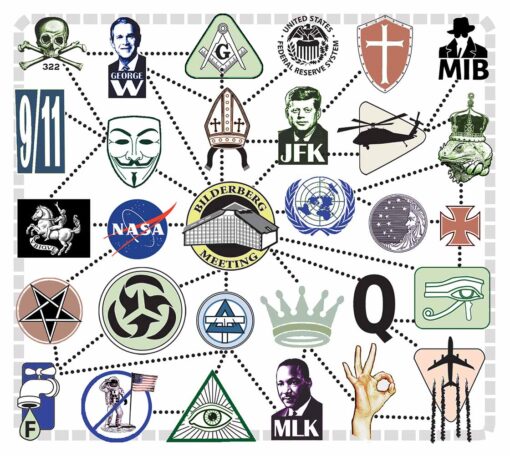Rothschilds

What is a conspiracy, and how does it differ from a conspiracy theory? Michael Shermer explains who believes conspiracy theories and why they believe them in the following essay, derived from Lecture 1 of his 12-lecture Audible Original course titled “Conspiracies and Conspiracy Theories: What We Should Believe and Why.”
Dr. Anondah Saide and Dr. Kevin McCaffree examine whether political party identification is associated with tolerant attitudes towards individuals with different political views. ALSO, Michael Shermer explains who believes conspiracy theories and why they believe them in an essay derived from a lecture on conspiracies and conspiracy theories.

In this article, originally published in Quillette on Halloween, October 31, 2019, Dr. Shermer argues that patternicity, agenticity, pessimism, the negativity bias, and the Second Law of Thermodynamics provides a deeper explanation for why conspiracy theories are so popular and enduring. The article is based on Dr. Shermer’s new course from Audible and The Teaching Company on Conspiracies and Conspiracy Theories.
In Science Salon # 90 Michael Shermer speaks with world renowned biological anthropologist Mel Konner who examines the nature of human nature, including (and especially) in his new book on the nature of religiosity. PLUS: In an article originally published in Quillette on Halloween, October 31, 2019, Dr. Shermer argues that patternicity, agenticity, pessimism, the negativity bias, and the Second Law of Thermodynamics provides a deeper explanation for why conspiracy theories are so popular and enduring. The article is based…









